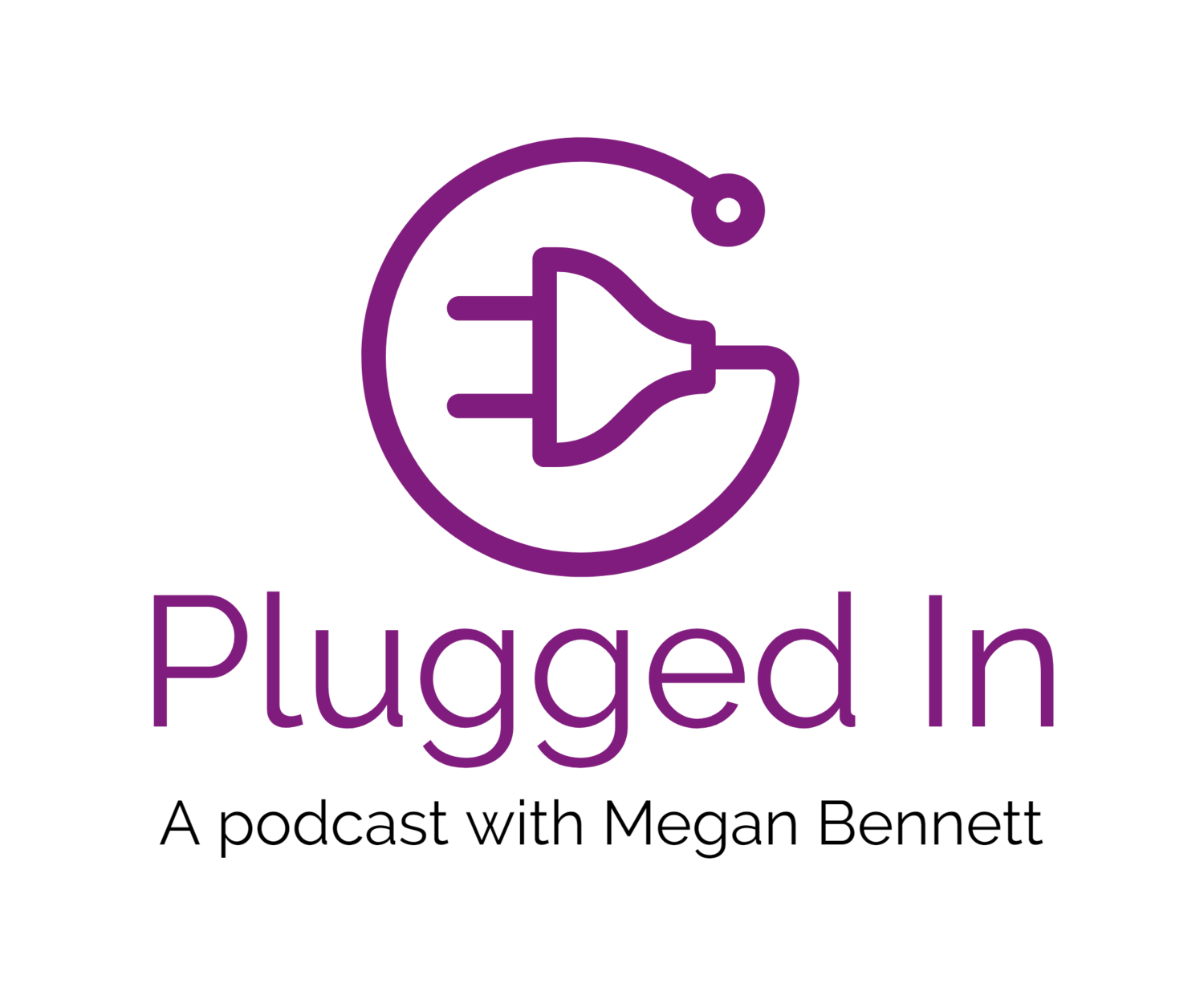Plugged In is where you come for courageous conversations with inspiring leaders on climate feminism, energy efficiency, and just solutions for a clean energy transition.
“Every episode of Plugged In leaves me feeling inspired by the impactful climate work being led by women across Canada and the world. Megan is an engaging host whose passion for climate action radiates throughout each episode.” ”
On this episode of Plugged In, author Alice Irene Whittaker discusses her new book Homing: A Quest to Care for Myself and the Earth and the importance of personal stories of care, love, and humanity in addressing climate change and social justice. We give you a sneak peek into our favourite sections of the book and topics including staying awake for the revolution, emphasizing care as a radical community endeavor, the importance of local community disaster recovery and care stories, the importance of nurturing, self-sufficiency, and resilience in children for an uncertain future, and finally the need for feminist and feminine approaches to climate action, emphasizing care, collaboration, and creativity.
Mihskakwan James Harper, a proud citizen of Sturgeon Lake Cree Nation in Treaty 8, Alberta, is passionate about energy storage and how this technology can support decarbonizing the grid and offer opportunities for meaningful engagement with Indigenous people and economic reconciliation for First Nations and Indigenous communities. Mihskakwan shares his vision for what an energy transition could look like if we get this transition right and how kinship and identify support his joy, motivation, and work in the sector.
I tried something new with this episode. I moderated a panel session at the Association of Energy Services Professionals (AESP) Annual Conference in New Orleans earlier in 2023, and recorded it in front of a live audience. The topic of the session was "exploring our (climate) emotions as energy services professionals" and I shared the stage with three incredible women: Pamela Fann, Principle Owner of Impact Energy, Jhane Wilcox, Director of Marketing at PosiGen, and Larissa Crawford, Founder and Managing Director of Future Ancestors Services. The questions we explored about climate emotions took us deep into the work of climate justice and the impacts of systemic racism and colonization.
Kim Nicholas’ book, Under the Sky We Make: How to be Human in a Warming World, was the book that had the most impact on me in 2022.
It woke me up to the urgency of the climate crisis in a way that I hadn’t felt before.
Specifically, how laser focused we need to be on eliminating fossil fuel consumption and extraction for a livable planet for humans. Period.
Jordyn Burnouf, an Indigenous leader in clean energy, climate and community divides her time between many impactful pursuits including advising the Vice President of the Métis Nation-Saskatchewan, Co-Charing Student Energy’s SevenGen Indigenous Youth Energy Summit, hosting a new podcast with the David Suzuki Foundation, advising Efficiency Canada and getting out onto the land as a guide with her family’s land-based camp.
You will hear the voices of Britt Wray, Jordyn Burnouf, Kim Nicholas, Miranda Baksh, Shawna Henderson and Desiree Norweigan speak about how they are experiencing climate feminism in their climate work, including the importance of feeling our climate emotions, how empathy and emotional intelligence are critical when negotiating climate policy, how the feminine helps hold space for diverse voices and bodies in organizations and businesses resulting in unique and valuable collaborations and solutions, and finally what feminist approaches can teach us about emotional resilience during these challenging times.
Talking about climate change and having conversations about how climate is impacting the things we love can be a powerful tool for helping move the dial on climate action.
How confident are you about starting a conversation with family about climate change? How comfortable are you bringing up the topic of climate impacts when chatting with friends over a drink? Today’s episode is all about how to talk about climate and why it matters.
Katie Harper (she/her) is a Senior Advisor at Project Neutral and is currently helping to design and facilitate Talk Climate To Me, a fun, free, unscary online climate education experience for women-identifying people in Canada.
Quinn Parker, CEO of Encolor, shares what sparked her to set out to make the energy sector more equitable, diverse, inclusive and socially just. Not a small undertaking.
She is now six months into running this business and the response, the work, and how she and her family feel about it, well, it’s not quite what she imagined it would be.
To fix climate change and the resulting social injustices and impacts, major systematic changes are going to be required. For Dr. Emily Eaton, Associate Professor in the Department of Geography and Environmental Studies at the University of Regina, she is championing a combination of decarbonization, decolonization and democratization as systematic changes required to get us to a clean, just energy transition.
“I listened while I walked within days of the release. I found myself audibly agreeing and commenting to myself throughout the entire podcast. I felt relief as I heard the guests speaking their truth because I felt similarly. What a gift to open the door, again, creating safe and public space to connect with others and collectively move forward. Thank you Megan for being a climate community builder; we need you and each other.”
”













In this episode, Jinhwa Hwong Ambrose shares how we can each discover our own unique joyful experience and “thread” in the beautiful diverse tapestry of climate solutions we need. It’s a refreshing, practical, playful and supportive approach to thinking about climate action.
Jinhwa Hwong-Ambrose offers workshops based on the Climate Action Venn diagram created by Dr. Ayana Elizabeth Johnson - a framework that helps us match our skills, passions and what brings us joy and delight with the climate solutions that we need.